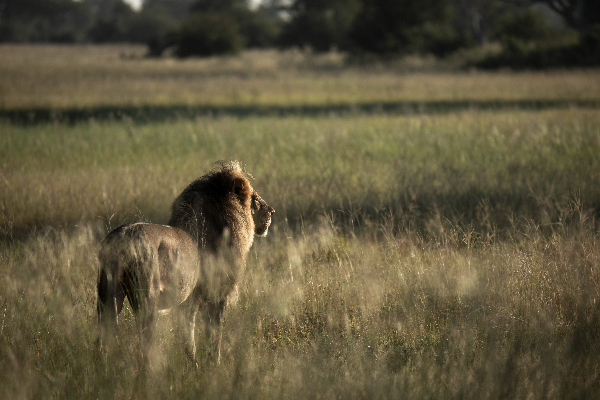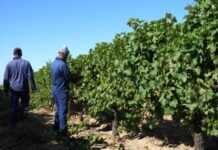23rd July 2025 – A groundbreaking new study from World Animal Protection reveals that the vast majority of community members living near Kruger National Park in South Africa support humane, wildlife-friendly conservation and are ready to move away from trophy hunting in favour of more ethical alternatives that protect both animals and livelihoods.
Based on interviews with more than 1,550 households across 12 communities bordering Kruger, the research offers compelling evidence that local people overwhelmingly support humane, wildlife-friendly protection, recognize animal sentience, and back alternative income sources like the proposed ‘lion levy’ – a modest conservation fee on international tourists – to replace income currently generated from hunting.
Dr. Angie Elwin, contributing researcher and Head of Research at World Animal Protection said: “This research sends a clear signal that when given a choice, communities favour a future where wildlife is protected and respected. The data dismantles the outdated narrative that communities need trophy hunting, instead revealing a growing desire to coexist with wildlife and benefit from its protection. These findings align closely with national and international conservation goals, providing strong evidence that wildlife-friendly economies are not only possible – but they are also preferred.”

Key Findings Include:
- 96%of respondents agreed that “wildlife is part of our heritage, and we should protect it.”
- 94%agreed that wild animals “have the ability to feel pleasure and pain and should not be killed for commercial gain.”
- 85%supported a lion levyas an alternative income stream.
- Over 80%supported each of ten wildlife-friendly livelihood options, including craft tourism, online tourism, and ecosystem service payments.
- A strong rejection of cultural or economic justifications for hunting: 70% disagreed with the statement that “hunting has always been part of our culture and should continue.”
The study comes at a pivotal moment, as global attention around the anniversary of Cecil the lion – killed in a controversial trophy hunt in 2015 – renews calls to end the practice entirely. With international pressure mounting and the South African government committed to sustainable biodiversity through its National Biodiversity Economy Strategy, these findings offer a timely, locally grounded path forward.
In 2023 alone, 6,052 international hunters shot more than 34,000 animals in South Africa, according to official statistics from the Professional Hunters’ Association prepared for the Department of Forestry, Fisheries, and the Environment.
Dr. Herbert Ntuli, Lead Researcher, South Africa’s Council for Scientific and Industrial Research, added: “These findings have far-reaching implications. They challenge long-standing assumptions and offer governments, policymakers, and conservationists a blueprint for conservation that is both ethical and practical. With the right investments, humane, wildlife-friendly models, such as the proposed lion levy, can deliver real, lasting benefits for people, wildlife, and future generations.”
The findings have been shared with the South African Government to highlight the urgent need to prioritise and promote wildlife-friendly activities as part of their vision for a more sustainable and ethical future for South Africa’s wildlife and its people.








